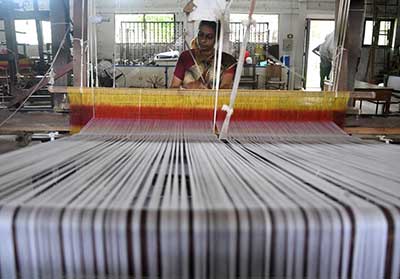Date: 04/03/2023
Relevance: GS-3: Indian Economy and issues relating to planning, mobilization, of resources, growth, development and employment.
Key Phrases: Micro And Small Enterprises, Income Tax Act, Audit, Regulation, Budget, GSTN, Udyam Registration, Trade Receivables Discounting System, CIBIL.
Context:
- The government has launched multiple initiatives to promote and
ensure timely payments to micro and small enterprises (MSEs).
- As part of these efforts, Budget 2023 aims to cover payments made to MSEs under Section 43B of the, 1961 (ITA).
- It envisages that any payment towards purchases from MSEs beyond the payment time limit specified in Section 15 of MSME Act will be allowed as deduction only on actual payment basis. Otherwise, the entire amount will be considered as income under ITA.
Existing Provisions:
- Under current provisions, buyers are required to make payments to MSEs within a maximum period of 45 days, with penal interest imposed for any delays.
- There are a variety of well-intended legal and regulatory provisions,
as well as supervisory and institutional infrastructure, to curb the
intractable issue of late payments to MSEs which includes:-
- Penal interest paid for delayed payment to MSEs is disallowed as a deductible expense.
- Companies are required to disclose overdue payments and interest in their audited accounts and submit a half-yearly report on the amount of overdue payments to MSEs and reasons for the delay.
- The Samadhan portal is available for registering complaints about delayed payments.
- The online Trade Receivables Discounting System [TReDS] has been implemented.
Prevailing Inadequacies:
- Despite the implementation of these measures, payment delays
continue to occur on a significant scale.
- According to a survey conducted by Dun & Bradstreet and Global Alliance for Mass Entrepreneurship in May 2022, an estimated ₹10.7-lakh-crore is trapped each year due to delayed payments to MSMEs, with 80 per cent of this amount relating to MSEs.
- Moreover, in FY2021, the median debtor days beyond the 45-day regulatory payment period were 195 days for micro units and 68 days for small units.
- These alarming figures, coupled with the low number of Samadhan cases, highlight the severe inadequacies of the remedies outlined in these regulations and the institutional infrastructure.
Limited Recourse:
- The power imbalance between small suppliers and large purchasers,
along with the fear of losing business if a late payment complaint is filed,
often leads to non-reporting, manipulation, and circumvention of the
provisions.
- Often, auditors take an escape route through a general disclaimer note stating that MSE data are unavailable with the client.
- Furthermore, the remedies for delayed payments involve time-consuming administrative procedures and a less effective enforcement mechanism, which discourage complaints filing.
- To strengthen the proposed provision of 43B(h) and prevent
manipulations and non-reporting, it is recommended that it be linked to the
GSTN system.
- The current system allows for some leeway for payment delays due to tax declarations being made at the end of the financial year.
- However, by integrating with the GSTN system, real-time digital monitoring of late payments can be enabled, which will help to eliminate such leeways and prevent manipulations.
- The Udyam Registration Portal is already integrated with both the
Income Tax and GSTN systems, making record sharing with the income tax site
more straightforward.
- Additionally, the Budget proposes that GSTN join the account aggregator network, which will further aid in data sharing and strengthen the enforcement of timely payments to MSEs.
Inclusive remedy:
- The proposed provision for automatic digital monitoring of late payments in real-time can be extended to all credit-based GST transactions to provide an integrated payment system that offers a comprehensive solution to late payments and defaults in the entire trade credit ecosystem.
- The current state of escalating credit indiscipline, protracted payment delays, and opportunistic behavior has negatively impacted many firms, leading to reduced trade credit flows, higher follow-up costs, and lower turnover.
- The proposed remedy has the potential to effectively address these
issues, creating a win-win ecosystem for firms of all sizes, banks, the
government, and overall economic growth.
- The auto-action against a payment delaying or defaulting firm can be graded, affecting its credit rating (CIBIL score), banking relationship, and market reputation.
Conclusion:
- The integration of the GSTN, IT, and Udyam Registration portals, along with the proposal to include the GSTN system in the account aggregator network, could prove to be a game-changer in the battle against late payments.
- However, to stabilize the payment system, some initial
flexibility in the 45-day payment period may be necessary. Otherwise,
certain firms may avoid direct purchases on credit from MSEs to evade the
regulations.
- To address this issue, the input from trade and industry to determine a practical solution could be taken.
Source: The Hindu BL
Mains Question:
Q. What measures has the government taken to promote and ensure timely payments to micro and small enterprises, and how does Budget 2023 seek to address payments made to MSEs? (150 words).







